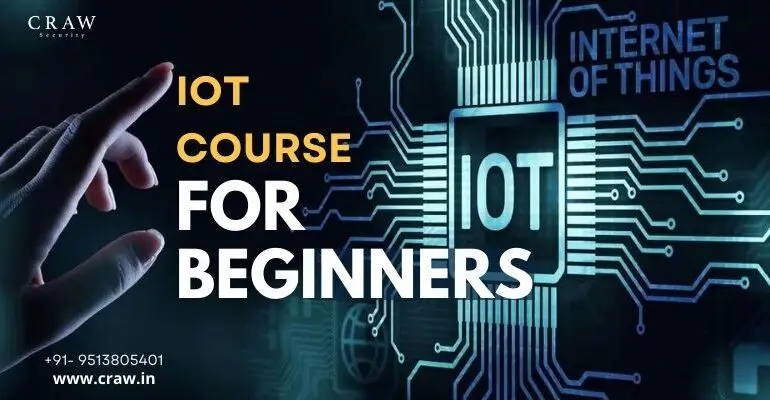The demand for connected devices and smart solutions is growing rapidly across the globe, making Join our IoT Certification Course for beginners. Learn Internet of Things basics, devices & applications with hands-on training for career growth. one of the most sought-after learning programs today. From wearable health trackers and smart home assistants to industrial automation and intelligent transportation, IoT is reshaping how we live and work.
These beginner IoT courses are designed to provide a clear, structured pathway into the IoT ecosystem. With a focus on both theory and practice, learners gain a solid foundation in IoT concepts, devices, networks, and applications, along with hands-on exposure to real-world projects. Whether you are a student aiming to enter the tech industry, a professional looking to upskill, or an entrepreneur with IoT-driven business ideas, this course prepares you for the future of connected technologies.
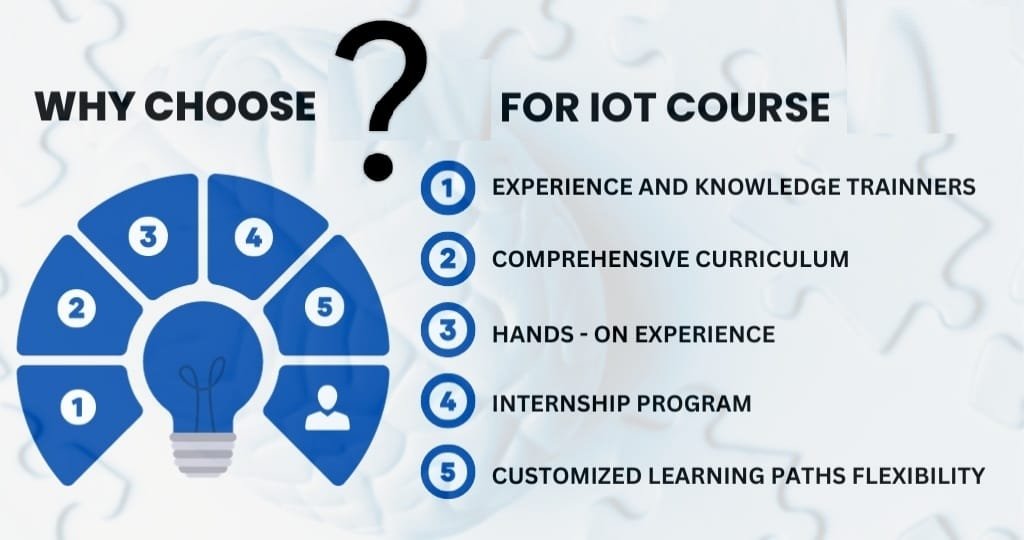
Why Choose ? IoT Course as a Beginner?
Starting your IoT journey early helps you tap into the fast-growing career market and gives you a head start in industries undergoing digital transformation.
Key Benefits of IoT Beginner Courses
- Beginner-friendly modules: No advanced technical skills are required to start.
- Hands-on practice: Work directly with IoT devices, sensors, and microcontrollers.
- Real-world applications: Learn how IoT is implemented in healthcare, smart homes, agriculture, and industries.
- Career growth: Build a foundation for advanced IoT certifications and specialized roles.
- Future-proof skills: Stay relevant in an increasingly automated and data-driven world.
What You Will Learn in Our IoT Courses
Our IoT courses for beginners are carefully structured to help you progress step by step from basics to applied skills.
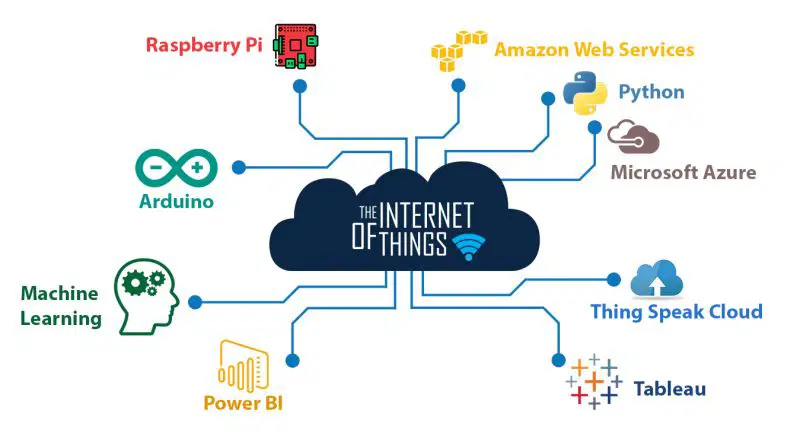
Core Modules Covered
- Introduction to IoT and its ecosystem – Basics of connected devices, architecture, and scope.
- IoT devices and sensors – Working with microcontrollers like Arduino, Raspberry Pi, and ESP8266.
- IoT networking and connectivity basics – Wi-Fi, Bluetooth, Zigbee, LoRaWAN, and 5G.
- Data management & cloud integration – Using cloud platforms like AWS IoT, Google Cloud IoT, and Microsoft Azure.
- Security & privacy in IoT systems – Protecting networks, encrypting data, and building ethical IoT systems.
- Practical applications – Projects across healthcare, transportation, manufacturing, smart homes, and agriculture.
Learning Outcomes – Skills You Will Gain
By the end of the Internet of Things (IoT) beginner course, learners will:
- Understand IoT fundamentals, concepts, and architecture.
- Gain practical knowledge of sensors, devices, and controllers.
- Learn to set up IoT networks and connectivity protocols.
- Work with real-time data collection, storage, and analysis.
- Implement IoT projects integrated with cloud platforms.
- Understand IoT security frameworks and privacy best practices.
- Build and present mini-projects showcasing real-world applications.
Step-by-Step IoT Learning Pathway
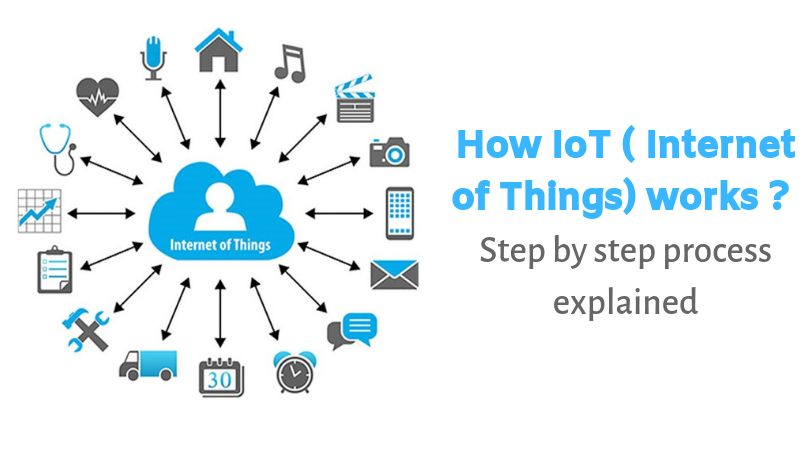
To make the course engaging and approachable, our IoT training follows a progressive pathway:
| Step | Module | What You’ll Learn |
| 1 | Introduction to IoT | Understand what IoT is, why it matters, and its impact across industries. |
| 2 | Working with Sensors & Devices | Hands-on practice with Arduino, Raspberry Pi, or ESP boards to build smart devices. |
| 3 | Connectivity & Networking | Learn communication protocols and how devices connect and interact with each other. |
| 4 | IoT Data & Cloud Integration | Explore how IoT devices collect, send, and store data securely in the cloud. |
| 5 | IoT Project Development | Apply your learning to real-world projects like smart lighting or IoT monitoring apps. |
| 6 | IoT Security Basics | Learn the fundamentals of IoT security to protect devices and user data. |
| 7 | Career Readiness | Get guidance on certifications, career roles, and applying IoT skills in the job market. |
Tools and Platforms You Will Learn
Our beginner IoT courses provide exposure to some of the most widely used platforms and tools in the industry:
- Hardware: Arduino, Raspberry Pi, ESP8266/ESP32 boards
- Networking Tools: MQTT, CoAP, HTTP, and Zigbee protocol simulators
- Cloud Platforms: AWS IoT, Google Cloud IoT, Microsoft Azure IoT Hub
- Programming Languages: Python, C/C++, JavaScript basics for IoT
- Security Tools: Basic IoT firewalls, encryption techniques, and secure device management
Industry Applications of IoT
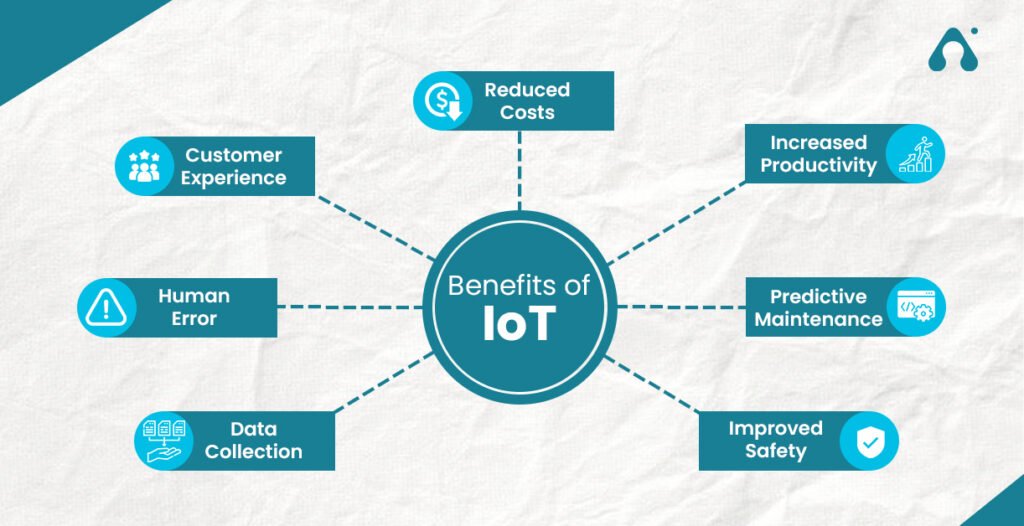
IoT is not limited to a single sector—it powers innovation across industries.
- Healthcare: Remote patient monitoring, wearable health devices, smart diagnostics.
- Manufacturing: Predictive maintenance, smart factories, and supply chain tracking.
- Agriculture: Smart irrigation systems, soil monitoring, and crop yield optimization.
- Transportation: Connected vehicles, fleet tracking, and traffic management systems.
- Smart Homes: Automated lighting, energy management, and security systems.
- Retail: Smart shelves, inventory management, and customer experience tools.
This variety ensures that career opportunities in IoT are open across multiple domains.
Career Opportunities in IoT
Completing a beginner IoT course creates multiple career pathways. Organizations are hiring IoT talent to build and maintain smart solutions.
| Career Role | Description | Average Salary (India, Entry-Level) |
| IoT Developer | Builds IoT applications and integrates devices into functional systems. | ₹4 – ₹6 LPA |
| IoT Solutions Engineer | Designs IoT solutions for industries such as healthcare, logistics, and smart cities. | ₹5 – ₹8 LPA |
| Embedded Systems Designer | Creates firmware and hardware for IoT devices. | ₹3.5 – ₹6.5 LPA |
| IoT Data Analyst | Interprets data from devices to guide insights and business strategies. | ₹4 – ₹7 LPA |
| IoT Security Specialist | Ensures devices and networks are secure against cyber threats. | ₹5 – ₹9 LPA |
Why IoT is a Future-Proof Career Choice
According to global reports, over 30 billion IoT devices are expected to be in use by 2030. Organizations are actively hiring skilled IoT professionals to manage, analyze, and secure connected ecosystems. By starting with a beginner IoT course, learners prepare themselves for long-term career growth in one of the fastest-growing industries.
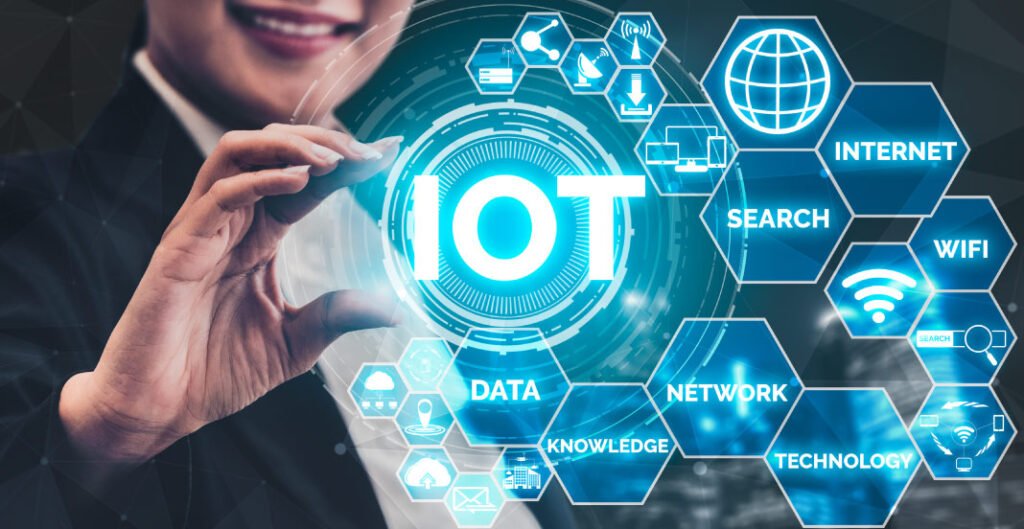
Enrolling in Internet of Things (IoT) Courses for Beginners is the perfect first step toward building a rewarding career in connected technologies. With a structured learning path, practical training, exposure to industry applications, and career-focused outcomes, these courses help learners confidently start their IoT journey.
Whether your goal is to secure a job, launch an IoT-based startup, or simply understand how connected devices work, an IoT beginner course ensures you gain the right mix of knowledge, skills, and industry readiness.
FAQs
Q1. What is the Internet of Things (IoT)?
IoT is a network of devices connected through the internet that collect, share, and analyze data.
Q2. Are IoT beginner courses suitable for non-technical learners?
Yes, these courses are designed for beginners, with or without prior coding experience.
Q3. What are the main skills gained in an IoT beginner course?
You’ll learn IoT basics, device handling, networking, cloud integration, and IoT security.
Q4. Do IoT training programs offer real-world projects?
Yes, you’ll work on projects like smart homes, IoT monitoring systems, and device integration.
Q5. What is the salary after completing an IoT beginner course?
Entry-level IoT roles in India offer salaries between ₹3.5 – ₹6 LPA.
Q6. Do I need coding knowledge to start?
No, coding is taught from scratch. Basic knowledge of Python or C can be helpful.
